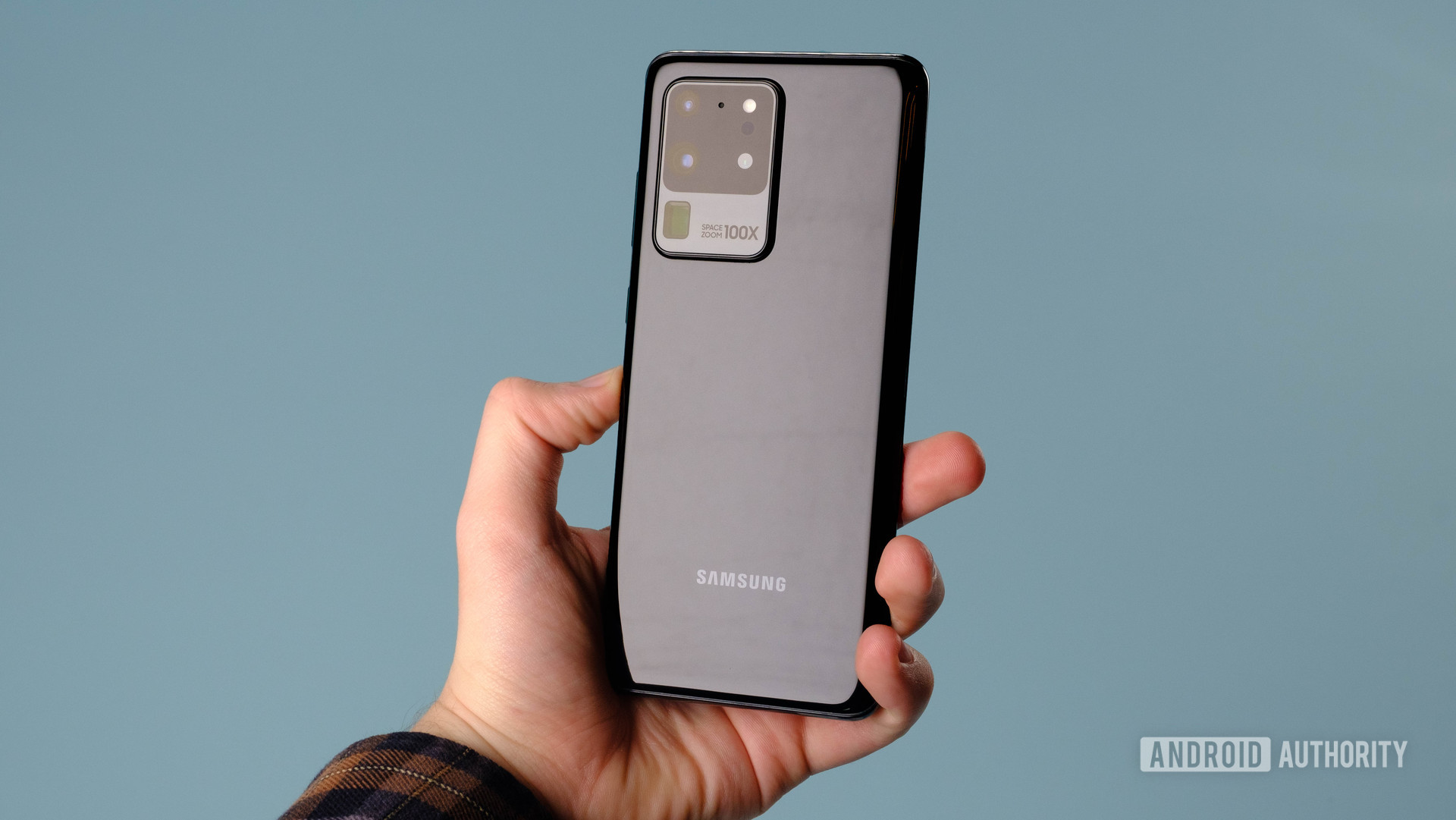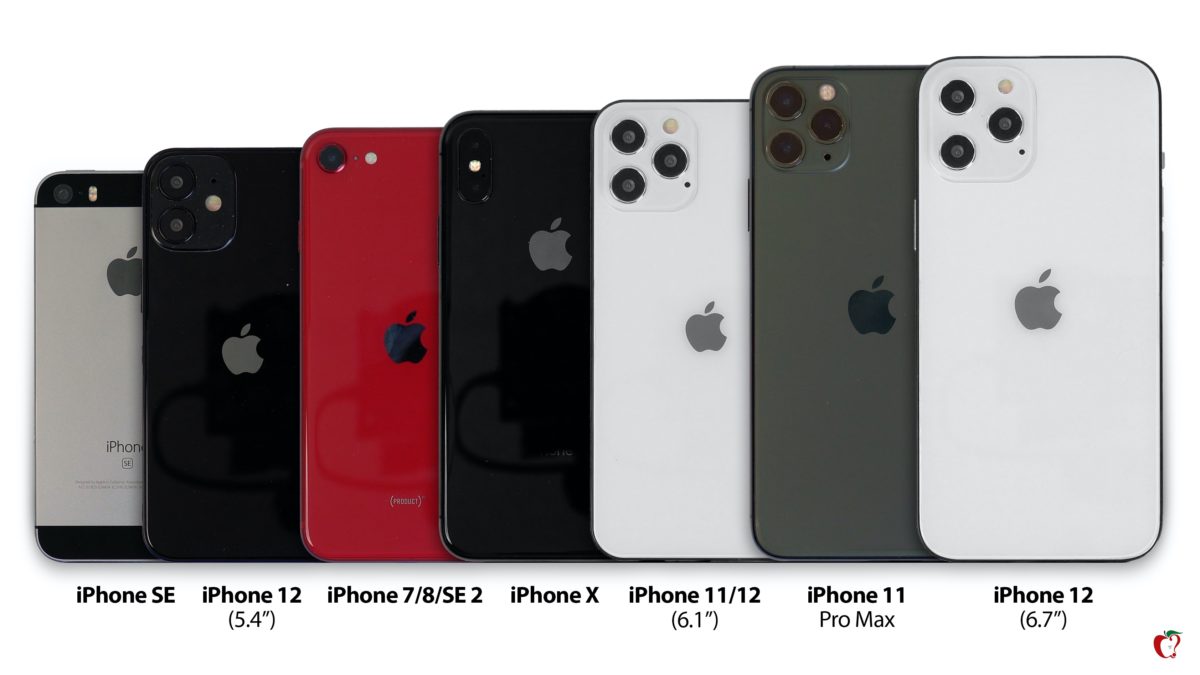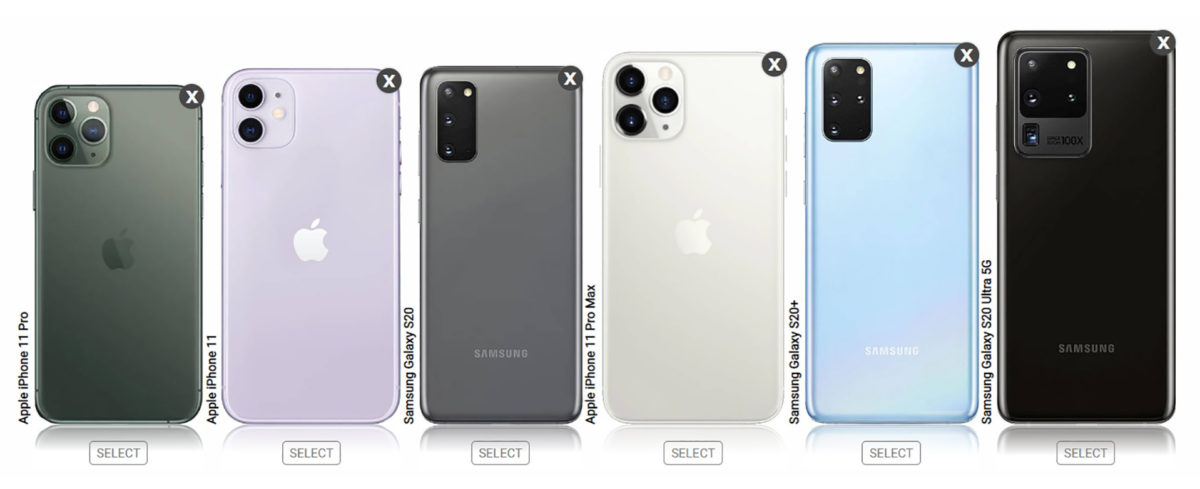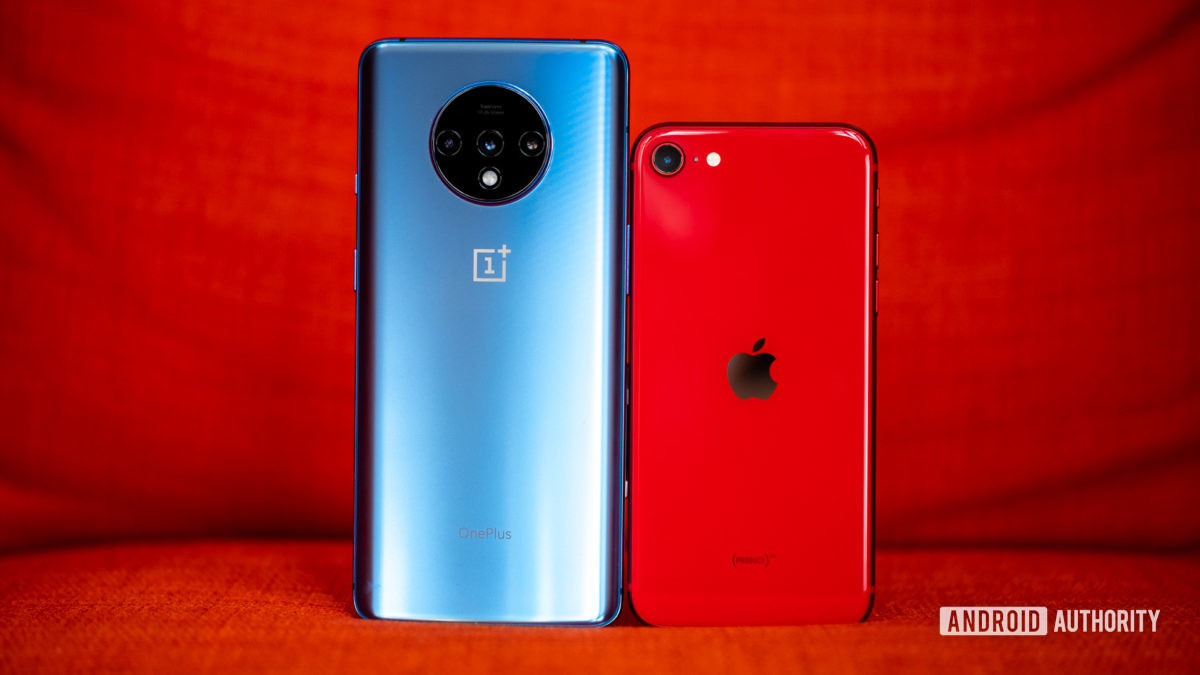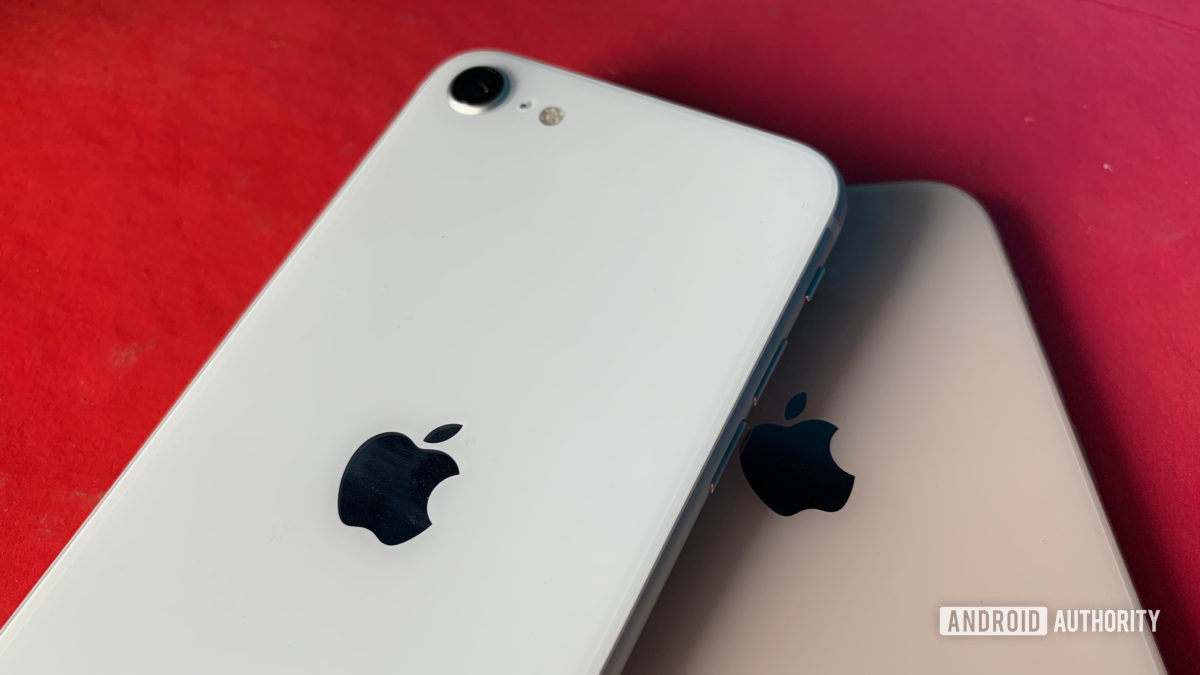
Credit: Adamya Sharma / Android Authority
This year, Apple is expected to launch more iPhones than it ever has before. We’ve already seen the iPhone SE and now it seems there will be no less than four iPhone 12 models launched later this Fall. While the expected number of iPhone 12 devices is certainly notable, the iPhone 12 sizes are also interesting.
According to rumors, the four upcoming iPhone 12 variants will possibly come in three different sizes: one with a 5.4-inch display, two with 6.1-inch displays, and one with a 6.7-inch display.
If this ends up being true, iPhone buyers will have plenty of options when it comes to how big or how small they like their phones. The iPhone 12 sizes will include a small phone for those who like things compact, a huge phone for those who like pocket tablets, and a middle-sized phone for those who can’t decide.
Meanwhile, Android phones increasingly come in two sizes: large and enormous. Even when manufacturers do push out more compact designs, they inevitably skimp out on specs and features, forcing consumers to choose between a phone that’s a comfortable size and a phone that will deliver the performance they require.
Now, we’ve complained about this a lot. Here’s a fairly recent example and here’s one that’s a bit older. However, all those complaints happened before we became relatively certain that Apple would be delivering all these iPhone 12 sizes. Now that we know what’s likely to go down, the situation is even more frustrating. Why does Android continue to ignore this problem?
Check out the iPhone 12 sizes for comparison
The image above (h/t MacRumors) shows the iPhone 12 sizes as compared to recent and older iPhones (the iPhone 12 models are just physical mock-ups based on leaked designs). The smallest iPhone 12 is nestled right in between the iPhone SE from 2016 and this year’s iPhone SE. The 2020 iPhone SE is the same size as the iPhone 7 and iPhone 8 — those are the non-Plus models, just for clarification. That means the premium iPhone 12 will be physically smaller than the budget phone Apple pushed out earlier this year.
Related: iPhone 6S getting iOS 14 is like the Galaxy S6 getting Android 11. Imagine that.
Meanwhile, the middle iPhone 12 models (which we are referring to as the iPhone 12 Max and iPhone 12 Pro for now) are roughly the same size as the iPhone 11 and only slightly larger than the iPhone X and iPhone XS. The iPhone 12 Pro Max appears to be the same size as (or maybe ever-so-slightly bigger than) the iPhone 11 Pro Max from last year.
Just look at all those choices with iPhone 12 sizes! Where would something like the Samsung Galaxy S20, Galaxy S20 Plus, and Galaxy S20 Ultra fall on that scale? Check out the sizes below, thanks to the incredibly useful tool over at PhoneSized.com:
You’ll have to use your imagination a little bit here, but basically, if you were to squeeze any of the Galaxy S20 phones into the all-iPhone image above, no Samsung phones would appear to the left of the 6.1-inch iPhone 11/12 Pro device. The Galaxy S20 line exists solely to the right of that phone, with nothing coming even close to the compact size of the iPhone 12.
Hopefully, Apple will lead the way here
Credit: David Imel / Android Authority
Obviously, the iPhone 12 sizes aren’t the only things that will be different among each model. The lowest-end iPhone 12 is expected to have a dual-lens rear camera while the two Pro models will likely have three, for example. There will also be lots of other features and specs tweaks that will make the iPhone 12 Pro and 12 Pro Max better (on paper) than the iPhone 12 and 12 Max.
However, we fully expect all of the phones to have the same processor. They likely all will offer 128GB of internal storage at the minimum. They all will certainly come with the latest version of iOS 14 and see years and years of software updates.
Android OEMs tend to follow Apple’s lead with stuff like this, so we can only hope that’s what they’ll do now.
In other words, even if a buyer does elect for the smaller iPhone 12, they won’t necessarily be making huge sacrifices in other areas. Sure, their phone won’t be the most powerful iPhone, but it likely won’t be a weak mid-ranger, either.
I can only hope that Apple is leading the way here, and Samsung, OnePlus, LG, and other smartphone OEMs follow suit. I, and many of us here at Android Authority, want smaller Android phones that don’t skimp out on power. Our readers want smaller Android phones. Apple is making smaller iPhone 12 sizes. All the evidence points to this being something Android OEMs should do, so any failure to not do so is really just inexcusable at this point.
More posts about Apple iPhone 12

Introvert. Beer guru. Communicator. Travel fanatic. Web advocate. Certified alcohol geek. Tv buff. Subtly charming internet aficionado.
